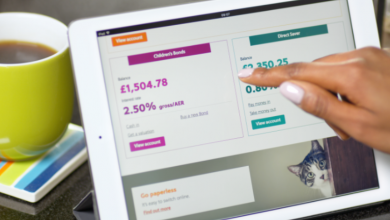How to Meet the Requirements for Buying a House with an LLC – FangWallet

This article may contain references to products or services from one or more of our advertisers or partners. We may receive compensation when you click on links to those products or services. Nonetheless, our opinions are our own.
Key Highlights
- Liability Protection: A major benefit of using an LLC is that it keeps your assets safe. If there are legal issues with the property, your personal belongings stay protected.
- Tax Advantages: You can enjoy tax benefits by deducting property taxes and mortgage interest. Plus, with pass-through taxation, you can avoid paying taxes on your income twice.
- Privacy: When buying property, your name can be kept off public records. This is great for those who want to keep their real estate deals private.
- Investment Opportunities: LLCs let several investors join their funds to buy property together. This way, they share the costs and any possible profits.
- Operational Ease: An LLC helps keep your real estate business separate from your personal life. This makes accounting, management, and organization easier.
Introduction
Have you thought about buying real estate with an LLC? A limited liability company allows you to buy property in a special way. It also protects your personal assets. We are here to help you learn how to use an LLC for your real estate transactions. We will talk about the benefits and the challenges you might face. Let’s dive in together and find out if this option is good for you!
Understanding LLCs and Real Estate Ownership
An LLC, or Limited Liability Company, helps you organize your business. It mixes features from corporations and partnerships. A key benefit of having an LLC is that it protects your personal assets from business debts and lawsuits. This means it acts as a shield between your personal life and your real estate work.
When you buy a house with an LLC, the LLC is the owner of the property, not you. This is important because it helps keep your personal savings, home, and other things safe from any legal issues connected to the property.
The Basics of an LLC for Beginners
An LLC, or limited liability company, is a common way to start a business in the U.S. Many people choose it because it is flexible. It also provides protection for their personal assets against business risks.
This distance from your business matters a lot. If your LLC has debts or is in a lawsuit, your personal belongings, such as your house, car, and savings, are usually safe.
Also, remember that the Internal Revenue Service (IRS) has specific rules for taxing LLCs. It is smart to talk to a tax expert. They can help you see what this means for your finances.
Why Use an LLC to Buy Real Estate?
Many real estate investors choose LLCs for several reasons. A big advantage is liability protection. If a tenant is injured on a property owned by your LLC, the lawsuit usually targets the LLC’s assets. This means your personal assets are often protected.
LLCs offer liability protection and can also help with tax benefits. For tax purposes, they are called pass-through entities. This means you report any profits and losses on your personal income tax return. By doing this, you can avoid double taxation, which often happens with corporations.
If you want to build a real estate portfolio, using LLCs is a good idea. They help you organize and manage your properties. Also, LLCs can keep your personal finances safe.
Preparing to Buy a House with an LLC
Now that we have talked about the “why,” let’s focus on the “how.” To buy a house with an LLC, you must prepare first. This will help guarantee that the buying process goes well and meets legal requirements.
The first step is to set up your LLC. Start by picking a name for your business. Then, complete the required forms for your state. Afterward, obtain an Employer Identification Number (EIN) from the IRS.
Essential Documents and Resources Needed
To start your LLC, you need a few important documents. The Articles of Organization is the most crucial one. You can think of it as the birth certificate for your LLC. You must submit this document to the Secretary of State in your state, and you will usually have to pay a fee when you file it.
Next, you need to get an Employer Identification Number (EIN) from the IRS. You need an EIN even if you do not plan to hire any employees. It is important for opening a bank account in your LLC’s name. You will also need it for filing your taxes and for building your business credit.
It’s important to open a separate bank account for your LLC. This step makes it easier to manage your finances. It keeps your personal money apart from your business money. This difference is key to keeping the liability protection that your LLC offers.
Evaluating Your Financial Readiness
Before starting real estate with an LLC, look at your finances. Make sure you have enough personal funds for the down payment and closing costs. Keep in mind that lenders usually have tougher rules for LLCs than for individuals applying for a mortgage.
It is important to check the real estate market. Are you in a buyer’s market or a seller’s market? Knowing what is going on now can help you get a better price and make smart choices.
Being prepared with your money is very important. You should check your credit score. Also, look at your debt-to-income ratio. It’s a good idea to speak with a financial advisor. This will help you make a solid plan for your real estate investment journey.
Step-by-Step Guide to Buying a House with an LLC
Are you set to move ahead? Buying a house with an LLC might feel tough. But don’t worry! We’ve made it easier for you. With this guide, you can feel confident as you follow the steps.
Let’s go over every step. This means you will need to set up your LLC. You will also need to manage your new property.
Step 1: Forming Your LLC Properly
The first step to buy a house with a limited liability company is to create your LLC if you haven’t done so yet. Start by picking a name for your LLC. After that, check if the name you want is available in your state. It’s important to know the rules in your state. Some states might require you to include words like “LLC” or “Limited Liability Company” in the name.
Next, you have to prepare your Articles of Organization. After that, send them to your state’s Secretary of State. These papers have important details about your LLC. They include the name, address, purpose, and the names of the members.
You often have to pay filing fees for this process. These fees can be different in each state. After your Articles of Organization are approved, you will receive a certificate of formation. This document shows that your LLC is a legal entity.
Step 2: Securing Financing as an LLC
Financing a property with an LLC works differently than getting a personal loan. Regular banks often feel uncertain about lending to LLCs because of their limited liability. To lessen their risk, banks usually ask for a bigger down payment, which is around 20-25%.
A mortgage acceleration clause is important to understand. It lets the lender ask for the total loan amount if specific things happen. These things can be changes in property ownership or not making loan payments.
Getting a regular loan can be tough. But, you have other choices. You can look into portfolio lenders, private lenders, or hard money lenders. These lenders focus on different kinds of funding. They may be more open to working with LLCs.
Step 3: Finding the Right Property
Now that you have your LLC and money ready, it’s time to look for the right property. You might want to work with a real estate agent. A good agent can really help LLCs like yours. They will guide you through the process. They can also help you find properties that match your investment goals.
Doing full due diligence is very important when you buy a property with an LLC. This means checking the condition of the property. You need to look for any repairs or risks that may exist. It is also good to understand the zoning laws if they apply. Lastly, getting familiar with the property taxes is a must.
Don’t be afraid to look into the neighborhood. Find out about the real estate market trends in the area. This information matters. It can help make your real estate investment successful and profitable.
When you see a property you want, you should make an offer with your LLC. It’s important to use the LLC’s name as the buyer on all purchase documents. This way, the property stays separate from you.
The purchase agreement should be easy to read. It needs to include any conditions, closing costs, and the timeline you both agree on. It is a good idea to work with a real estate attorney. They can help protect your rights and ensure that the agreement follows all legal requirements.
Before you complete the deal, you need a trustworthy title company to do a title search. This search shows that the seller can sell the property and that there are no liens or claims against it. Be ready for extra costs related to the title search, title insurance, and closing fees.
Step 5: Managing Your New Property
Congratulations! You have finished the buying process! Now, it’s time to take care of your property. If you want to rent it out, set up a way to find tenants, collect rent, and handle maintenance requests. It may be wise to hire a property management company. This is especially important if you own more than one property.
Getting good property insurance is very important. It protects your investment from risks like fire, theft, and natural disasters. Talk with your insurance agent about your needs. Choose a policy that covers the specific risks for your rental properties.
Managing rental properties comes with many tasks. You have to follow landlord-tenant laws. It is very important to keep track of your finances. You should solve tenant problems quickly and in a professional manner.
The Benefits of Using an LLC for Property Purchase
Buying a house with an LLC has several clear benefits. First, it helps protect your personal assets. This happens because it keeps your real estate separate from your name.
LLCs can provide tax benefits. They allow you to choose how to handle your profits and losses. Additionally, they simplify owning property together. This can attract potential investors since LLCs create a solid legal structure for sharing real estate.
Privacy Protection and Anonymity
For some people, such as public figures or those who want to keep a low profile, privacy in real estate deals is very important. Luckily, LLCs can help with this. They keep your personal name private.
When you buy a property with your LLC, only the LLC’s name is shown in public records. This includes documents like deeds and mortgages. Because of this, nosy neighbors or anyone looking for property records cannot easily find out who actually owns the property.
This kind of privacy is very attractive for famous people, celebrities, or anyone who wants to stay away from the public while dealing with real estate.
Tax Advantages and Flexibility
LLCs have several tax benefits that attract wise investors. A key advantage is avoiding double taxation, which many corporations face. LLCs work as pass-through entities. This means that any profits and losses show up on your personal tax return. Because of this, profits are not taxed two times.
LLCs let you pick how you want to handle capital gains taxes. If you sell a property, you can choose to pay taxes at your personal rate. This rate might be lower than the corporate tax rate. Making this choice could help bring down what you owe in taxes.
It’s important to remember that tax laws are different for each person. They can also be difficult to understand. A smart option is to talk with a tax advisor. A tax advisor can help you make the most of the tax advantages that LLCs offer.
Conclusion
In conclusion, buying a house with an LLC can offer several benefits. It helps keep your privacy secure and offers tax benefits. It is important to know how to set up an LLC. Also, make sure you are financially ready. A step-by-step guide can assist you in this buying journey. Start by properly setting up your LLC. Next, manage your new property well. If you take this path, ensure you have the necessary documents and tools. This approach can give you more flexibility and protection. It is a smart choice for real estate investment. For more details about buying a house with an LLC, visit our FAQs section.
Frequently Asked Questions
Can I transfer my personal property into an LLC?
Yes, you can put real estate into an LLC that you own. You just need to follow some legal requirements. First, you will need to change the property title. You might also have to refinance your mortgage. It’s also a good idea to think about any tax implications. Be sure to talk to a real estate attorney to make the transfer easy.
Is it more difficult to get a mortgage through an LLC?
Getting a mortgage in your LLC’s name can be harder. Lenders often see LLCs as riskier compared to other borrowers. This is because LLCs provide limited liability protection. As a result, you might need to give a bigger down payment. The approval process could be stricter, and you may also face higher interest rates.
What are the tax benefits of buying property under an LLC?
LLCs can have good tax benefits. You can get deductions for business costs, losses on property over time, and income that passes through. This kind of setup allows you to avoid double taxation. It is a good idea to talk to a tax advisor. They can help you understand the tax implications for your situation.
How does owning property in an LLC affect personal liability?
Owning property in an LLC can help protect your personal assets from legal issues. If someone sues the LLC, your personal assets are usually safe. However, if you sign personal guarantees for loans or take specific actions, you may lose that protection.
Can I live in a property owned by my LLC?
You can stay in a place that your LLC owns. But, this is usually not a smart choice. If you do this, you might mix your personal things with your business things. This mix can weaken the liability protection your LLC offers you.

Reviewed and edited by Albert Fang
See a typo or want to suggest an edit/revision to the content? Use the comment form below for feedback.
At FangWallet, we value editorial integrity and open collaboration in curating quality content for readers to enjoy. Much appreciated for the assist.
Did you like our article and find it insightful? We encourage sharing the article link with family and friends to benefit as well – better yet, sharing on social media. Thank you for the support!
Article Title: How to Meet the Requirements for Buying a House with an LLC
https://fangwallet.com/2024/11/23/how-to-meet-the-requirements-for-buying-a-house-with-an-llc/The FangWallet Promise
FangWallet is an editorially independent resource – founded on breaking down challenging financial concepts for anyone to understand since 2014. While we adhere to editorial integrity, note that this post may contain references to products from our partners.
The FangWallet promise is always to have your best interest in mind and be transparent and honest about the financial picture.
Become an Insider
Editorial Disclaimer: The editorial content on this page is not provided by any of the companies mentioned. The opinions expressed here are the author’s alone.
The content of this website is for informational purposes only and does not represent investment advice, or an offer or solicitation to buy or sell any security, investment, or product. Investors are encouraged to do their own due diligence, and, if necessary, consult professional advising before making any investment decisions. Investing involves a high degree of risk, and financial losses may occur including the potential loss of principal.
Advertiser Disclosure: This article may contain references to products or services from one or more of our advertisers or partners. We may receive compensation when you click on links to those products or services.
Source: How to Meet the Requirements for Buying a House with an LLC – FangWallet





